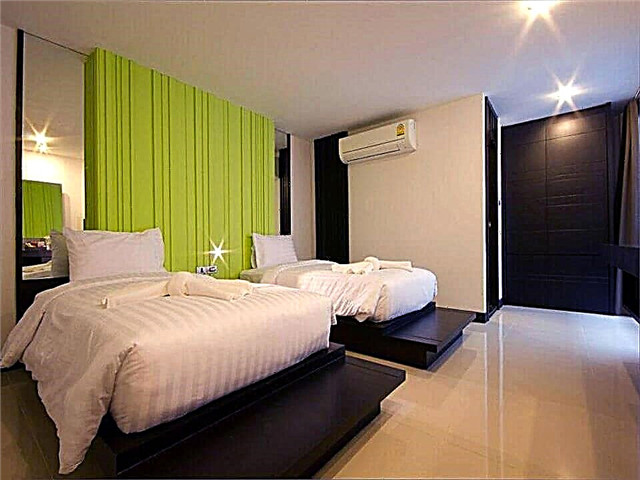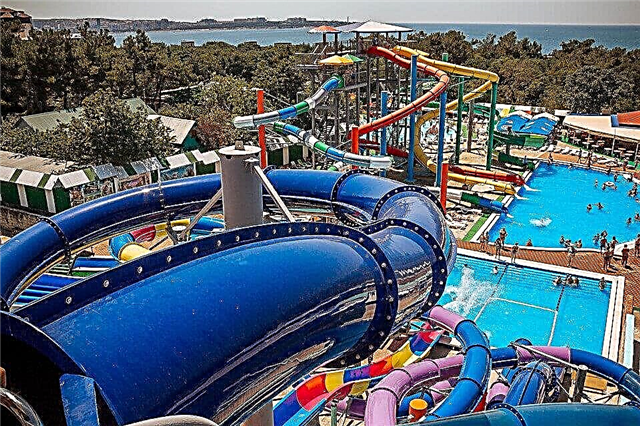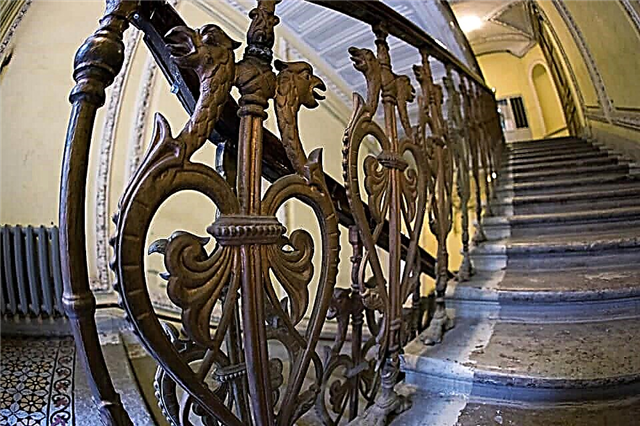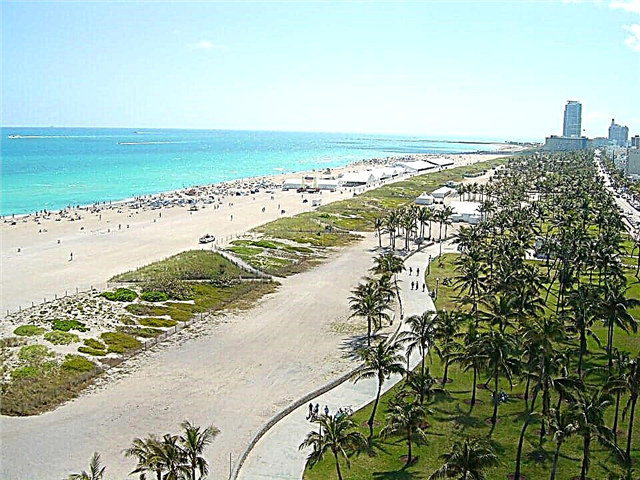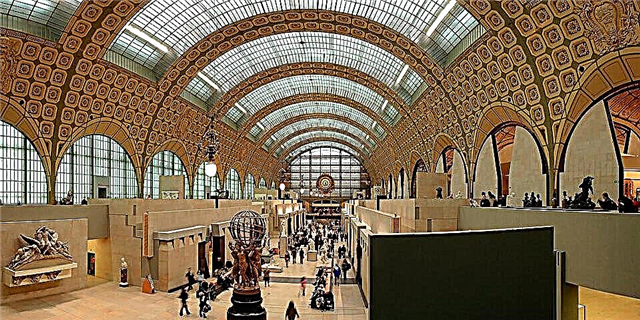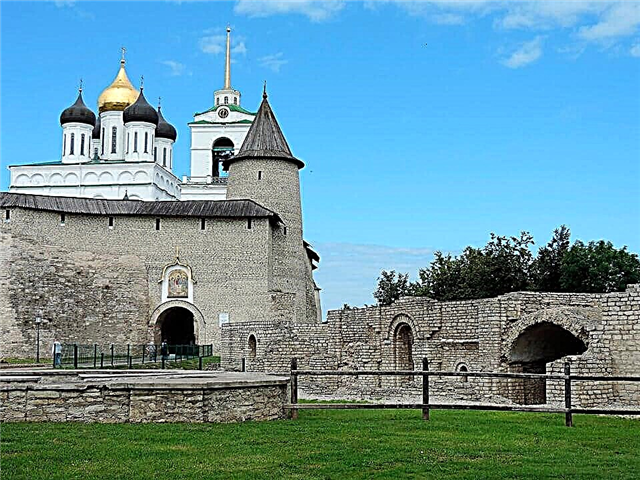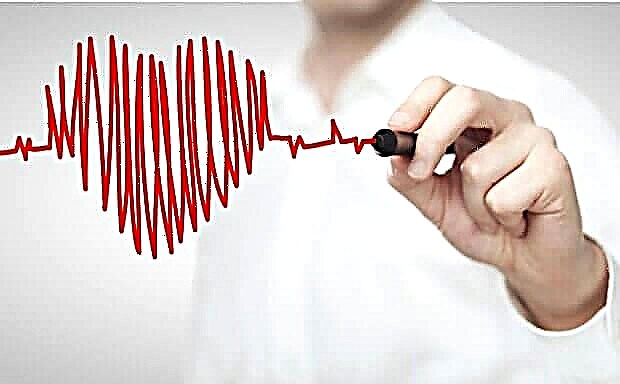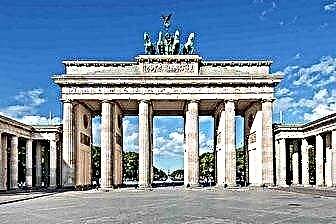Style, ease and lightness reign in Berlin. Too many grandiose and at the same time tragic events took place in the German capital - the declaration of the Third Reich, Nazi pogroms, almost complete destruction by bombing, half a century of division into Western and Eastern parts. Now the city seems to be resting and is happy to write its history anew.
Berlin's districts are not alike at all. In the historic central part, the gloomy bulk of the Reichstag and the palaces of the Museum Island rise. The trendy eastern quarters are home to interesting restaurants, stylish clubs and art spaces. The best shops in the city are located on the Kurfürstendamm boulevard.
Berlin, of course, is not as smart and ceremonial as other European capitals, but it has its own soul, which is gradually revealed to the traveler.

The best hotels and hotels at affordable prices.
from 500 rubles / day
What to see and where to go in Berlin?
The most interesting and beautiful places for walking. Photos and a short description.
Brandenburg Gate
An important architectural monument in Berlin with special symbolic significance. In 1871, a solemn procession of Prussian regiments passed through the gate, which marked the declaration of the German Empire. In 1933, the famous Nazi torchlight procession took place here and the "Millennium Reich" was proclaimed. After World War II, the Brandenburg Gate became the border of the division of Germany into West and East.

Reichstag
The Reichstag was the seat of the German Legislative Assembly during the period of the German Empire, the Weimar Republic and the Third Reich. The modern German parliament also holds meetings in the Reichstag. The building itself was built in a very pompous and somewhat overwhelming manner, which, according to the architects' plan, was to emphasize the greatness of the Empire. Everything in the Reichstag seems huge and incomprehensible - columns, gray facades, a grandiose glass dome.

Berlin Wall
The wall that, following the results of the Second World War, divided Berlin into zones of influence of two main opponents - the military blocs of the Internal Affairs Directorate and NATO. The wall stood for almost 30 years and became a symbol of the Cold War. It was a real border with checkpoints and guards. After the fall of the Wall and the unification of Germany in 1989, its fragments were gradually taken away as souvenirs. It was decided to keep some fragments of the structure as a monument.

Berlin Cathedral
The largest Protestant church in Germany is located within the Museum Island. The cathedral was erected in the era of Kaiser Wilhelm II and was conceived as a German analogue of St. Peter's Cathedral in the Vatican. The building simply dazzles with its solemn and majestic architecture. One gets the feeling that it was built by giants. The observation deck of the temple offers an excellent panoramic view of Berlin.

Charlottenburg
A late 17th century baroque palace, a gift from King Frederick I to his wife Sophia Charlotte of Hanover. After the completion of construction, it immediately began to be used as a royal residence. In front of the palace, a park is laid out in the classical traditions of French and English landscape art. At first the building was called Litzenburg, but after the death of the queen it was renamed in her honor.
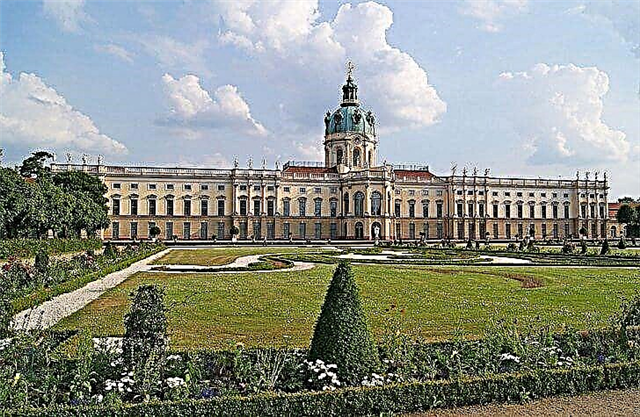
Spandau Citadel
Fortress of the 17th century on the outskirts of Berlin, built during the reign of Joachim II. At the beginning of the 20th century, weapons and ammunition were manufactured on the territory of Spandau. In 1935, a secret Nazi laboratory was located here, where chemical weapons were developed. The last secret warehouse was found in the 70s. Tourists were admitted to the territory in 1992, after the final "defrosting" of the facility.

Bellevue Palace
The building is located in the Tiergarten park. It is used as the residence of the President of Germany. During the German Empire, Bellevue belonged to the ruling family and was used as the summer palace of one of the princes. After the fall of the monarchy, it became the property of the state, and in 1935 the Museum of Applied Arts was located on the territory. You can get inside the building only at certain times, once a week.

Köpenick Palace
A palace on the site of an ancient fortress (presumably built by the Slavs). In the 16th century, Köpenick was a more modest structure and was used as a hunting castle for Elector Joachim II. In the 17th century, the palace was expanded and a park was laid out on the adjacent territory. Nowadays, the building houses the Museum of Decorative and Applied Arts. Concerts are held in the square in front of the palace in summer.

Red town hall
The Red City Hall is the seat of the city government and the Berlin burgomaster. This is a neo-Renaissance building with elements of the neo-gothic style of the late 19th century. As a result of the bombing of Berlin in 1945, the building was badly damaged and required lengthy restoration. Interestingly, the state halls of the town hall can be rented for private events.

Ka-De-Ve
A six-story store from the early 20th century. As its permanent slogan, it uses the call “Come, see, be surprised!”. Despite its fairly decent age, the department store offers the best service and a wide variety of products in almost all price categories. In terms of importance and prestige for the Germans, it can be compared with the London Harrods. In Ka-De-Ve it is impossible to stumble upon a fake or buy a low-quality item.

Alexanderplatz
The square where at the beginning of the 19th century Kaiser Wilhelm III received Emperor Alexander I. The place was named in honor of the Russian monarch. The square houses the city hall, a modern TV tower, and the Friendship of Peoples fountain. Until the 17th century, there was a livestock market and a place for the execution of criminals. The houses surrounding the square were mainly settled by butchers, cattlemen, merchants, and shepherds. In the 18th century, craftsmen and petty bourgeois were added to the list of permanent residents.

Potsdamer Platz
Platz in the Tiergarten district on the site of the destroyed Potsdam Gate. Before the bombing of the Second World War, a well-maintained quarter was adjacent to the square - a popular place for leisure and recreation for Berliners. Everything was destroyed and turned into ruins, nothing of the historical buildings survived. Today, modern high-rise buildings rise around the square, where the offices of large corporations are located.

Gendarmenmarkt
One of the most beautiful squares in Berlin. The main architectural ensemble consists of three buildings: the German and French cathedrals and a concert hall located in the middle. All three buildings are designed in tones of strict classical style. In December, a Christmas tree is set up on the Gendarmenmarkt and a fair begins to work. Festive lighting is lit on the facades of cathedrals and the Concert Hall.

Berlin State Opera
The very first opera house was built in the middle of the 18th century. During the Second World War, it was destroyed twice - during the bombing raids in 1941 and 1945. Restoration work was carried out until 1955. The renewed opera stage opened with a production of The Nuremberg Meistersingers, an immortal work of the German musical genius Richard Wagner.

Madame Tussauds museum
Berlin branch of Madame Tussauds Wax Museum. Located on Boulevard Unten der Linden. Here you can see copies of Otto von Bismarck, A. Einstein, Ludwig Beethoven, K. Marx. More modern exhibits include Angela Merkel, Johnny Depp, Rihanna, Madonna and many other famous characters.Particular attention is drawn to the figure of Hitler behind a glass wall. The sinister Fuhrer is depicted at the time of the decision to commit suicide.

Museum Island
Berlin's Great Museum Quarter, a UNESCO Heritage Site. There are five museums here: the Old National Gallery, the Bode Museum, the Old and New Museums, and the Pergamon Museum. Extensive exhibitions tell about the history from primitive times to the present day, hundreds of paintings by masters from different countries, schools and periods are exhibited in numerous art galleries.

Topography of terror
Memorial complex dedicated to the victims of the Nazi regime. It is located on the territory where the headquarters of the SS and SD were located. The complex is a whole group of expositions, memorials, open-air exhibitions, preserved administrative buildings of the Third Reich, cellars and barracks. Topography of Terror started in 1987. The total area of the exposition is more than 800 m².

Memorial to the Murdered Jews of Europe
Monument in honor of the Jews killed by the Nazis. The memorial complex has a rather interesting and unusual architectural solution, which accurately conveys the atmosphere of horror that reigned in Germany after Hitler came to power. The memorial consists of several rows of unnamed gray tombstones of various sizes. They seem to form a labyrinth and symbolize death and hopelessness.

Neue Wache
The main memorial in Germany, dedicated to all the victims of war and tyranny. It is a sculpture of a mother with her murdered son in her arms. Neue Vahe appeared at the beginning of the 19th century and, according to the idea of the king, was supposed to serve as a monument to those killed in the Napoleonic wars. In those years and until the end of the 20th century, it was a guardhouse with an honorary guard. The sculpture was installed in 1993 at the initiative of Chancellor G. Kohl.

Kaiser Wilhelm Memorial Church
Temple of the late 19th century, built in honor of the first Kaiser of the united German Empire, Wilhelm I. The building was badly damaged by the bombing, only part of the western tower remained from it. In the 60s. a modern building was erected near the tower. It was assumed that the new building would form a harmonious ensemble with the remains of the church. Inside it is a 4.6-meter figure of Christ.

Church of St. Nicholas
The oldest church in Berlin. It is believed to have appeared in the 13th century. Services were held here until 1938. As a result of the destruction during the war, only the outer walls remained from the church. After its restoration in 1981, the building was used as a concert hall and as a venue for exhibitions. The structure is a typical "Protestant" building with laconic forms and sharp spiers of towers.

St. Mary's Church
An old operating Lutheran church near the Berlin TV tower. The history of the church began in the 13th century, since then it has been repeatedly burned and rebuilt. Like many historic buildings, St. Mary's Church was rebuilt after the war in the 60s and 70s. XX century. Inside the temple there is an organ played by I.S. Bach. On Sundays, during the service, you can enjoy the performance of the church choir.

New Synagogue
Jewish temple of the middle of the 19th century. Surprisingly, the Wehrmacht authorities did not destroy it, but simply closed it in 1940, the premises were adapted as a warehouse. The synagogue also survived the bombing, although it was significantly damaged. After the war, they decided not to restore the temple, since almost all Jews - potential parishioners - were killed under Hitler. The building was demolished in 1958, leaving only the facade. After the unification of Germany, the synagogue was rebuilt.

Checkpoint Charlie
An iconic and iconic place on Friedrichstrasse Street, a symbol of the confrontation between the two implacable enemies of the Cold War - the USSR and the USA. After the division of Germany, the border was crossed here and a military checkpoint was organized. It was at Checkpoint Charlie that a tank confrontation took place during the Berlin crisis of 1958-1962, during which the world came close to a nuclear war.

Berlin TV Tower
The TV tower is over 360 meters high. Builds the fourth tallest TV tower in Europe. Started working in 1969. In sunny weather, the shape of a cross is reflected on the ball crowning the structure (apparently, from a nearby church). Associated with this fact is the speculation that the architect was interrogated in the relevant authorities, allegedly for the deliberate design of the cross.

Berlin Zoo
Zoological garden in the Tiergarten area with a total area of 25 hectares. There are 1,500 species of animals represented here (a total of 15 thousand individuals). The zoo was opened in the middle of the 19th century for the Prussian king William IV. Gradually, access was allowed for mere mortals. At the beginning of the 20th century, Berlin Zoo was considered one of the most advanced and modernly equipped zoological gardens. During the war, a bomb hit the territory, and out of almost 4 thousand animals, only about a hundred survived.

Treptower Park
A park on the banks of the Spree River, where a large memorial complex in honor of Soviet soldiers-liberators is located. The central monument of the park is an 8-meter figure of a soldier with a sword and a little girl in his arms. The alley of sarcophagi leads to the statue, where the remains of several thousand soldiers are buried in five mass graves. Parts of the facade of the Reichstag were used to make the slabs of the alley.

Botanical Garden
The garden was laid out in the 19th century and initially served as a recreation area. Over time, it became a research center. At the moment, several thousand plants grow here, among which there are many exotic and not typical specimens for these latitudes. There are several greenhouses in the Botanical Garden, where a rich variety of exotic flowers, cacti, ferns and other species are presented.

Boulevard Unter den Linden
One of the most famous streets in Berlin, the local "Broadway" and the center of the fashionable life of the capital. Famous city attractions are located along the boulevard. Unter den Linden starts at the palace square and leads to the Brandenburg Gate. Back in the 18th century, the boulevard became the hallmark of Prussia. The local nobility loved to arrange evening promenades along the picturesque linden alleys.

Great Tiergarten park
A green oasis in the city center, where you can admire nature and enjoy the tranquility. The Tiergarten has dozens of paths, well-groomed alleys, cozy pavilions and benches. In the center of the park stands the grandiose Triumphal Column, which symbolizes the power of the German nation. In summer, on the numerous lawns, people sunbathe or simply relax in the generous shade of the trees.


